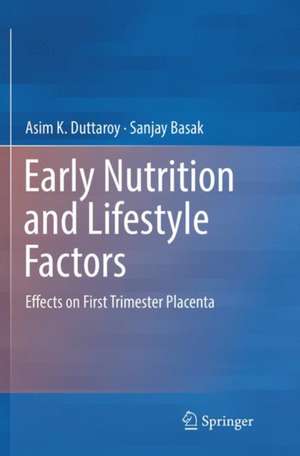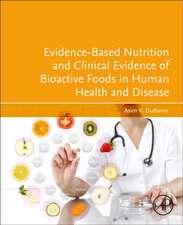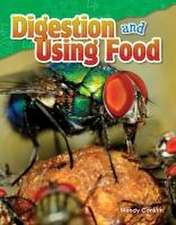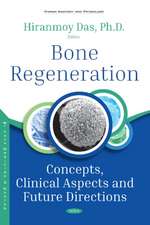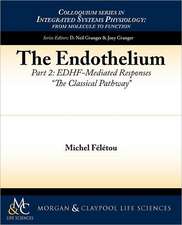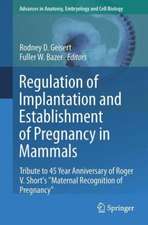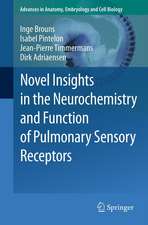Early Nutrition and Lifestyle Factors: Effects on First Trimester Placenta
Autor Asim K. Duttaroy, Sanjay Basaken Limba Engleză Paperback – 6 iun 2018
| Toate formatele și edițiile | Preț | Express |
|---|---|---|
| Paperback (1) | 1087.47 lei 6-8 săpt. | |
| Springer International Publishing – 6 iun 2018 | 1087.47 lei 6-8 săpt. | |
| Hardback (1) | 1094.25 lei 6-8 săpt. | |
| Springer International Publishing – 8 aug 2016 | 1094.25 lei 6-8 săpt. |
Preț: 1087.47 lei
Preț vechi: 1144.71 lei
-5% Nou
Puncte Express: 1631
Preț estimativ în valută:
208.15€ • 226.18$ • 174.96£
208.15€ • 226.18$ • 174.96£
Carte tipărită la comandă
Livrare economică 21 aprilie-05 mai
Preluare comenzi: 021 569.72.76
Specificații
ISBN-13: 9783319817507
ISBN-10: 3319817507
Ilustrații: X, 159 p. 18 illus., 14 illus. in color.
Dimensiuni: 155 x 235 mm
Greutate: 0.25 kg
Ediția:Softcover reprint of the original 1st ed. 2016
Editura: Springer International Publishing
Colecția Springer
Locul publicării:Cham, Switzerland
ISBN-10: 3319817507
Ilustrații: X, 159 p. 18 illus., 14 illus. in color.
Dimensiuni: 155 x 235 mm
Greutate: 0.25 kg
Ediția:Softcover reprint of the original 1st ed. 2016
Editura: Springer International Publishing
Colecția Springer
Locul publicării:Cham, Switzerland
Cuprins
1. Growth factors, microenvironment and placentation.- 2. Major nutrients and their roles on placentation.- 3. Long chain fatty acids and their effects on placentation.- 4. Folic acid, vitamin B12 and their role on early placentation.- 5. Vitamins as early nutrient for the growth and development of the fetus.- 6. Hyperglycemia and its effect on placentation.- 7. Impact of maternal stress and smoking on placentation.- 8. Effects of maternal obesity and cytokines on placentation.- 9. Regulation of placentation by lifestyle and environmental factors.- 10. Epigenetics and placental development.- 11. Expression of genes responsible for placentation.- 12. Importance of Docosahexaenoic acid on placentation processes.- 13. Sources of key nutrients for successful placentation.- 14. Placentation as a predictor of feto-placental outcome.
Notă biografică
Asim K. Duttaroy is Professor in the Division of Clinical Nutrition at the University of Oslo, Norway. Sanjay Basak, PhD, works in the Molecular Biology Division of the National Institute of Nutrition (ICMR), Hyderabad, India.
Textul de pe ultima copertă
This book highlights the impact of nutrients on early placentation processes and their relevance for fetal growth and pregnancy outcome. The role of maternal nutrition on fetal growth and development has been evidenced in many epidemiological studies that included infamous Dutch famine, Helsinki Birth cohort and others. Fetal programming hypothesis states that the nutritional and other environmental conditions under which an individual develops from pre-conception to birth has a major impact on the future health of the newborn child. The developmental environment of the fetus is primarily dependent on two major factors that are maternal nutritional state (excess/low/imbalance) and placental function. Placentation is characterized by the extensive remodeling of the maternal uterine vasculature producing low-resistance blood vessels that facilitate the exchange of nutrients and wastes between the mother and the fetus. Cellular and molecular mechanisms involved in human placental blood vessel formation, which are now well established, are discussed.
Caracteristici
Highlights the impact of nutrients on early placentation processes
Focuses on cellular and molecular mechanisms involved in human placental blood vessel formation
Provides an update on the role of maternal dietary, health and lifestyle factors
Focuses on cellular and molecular mechanisms involved in human placental blood vessel formation
Provides an update on the role of maternal dietary, health and lifestyle factors
